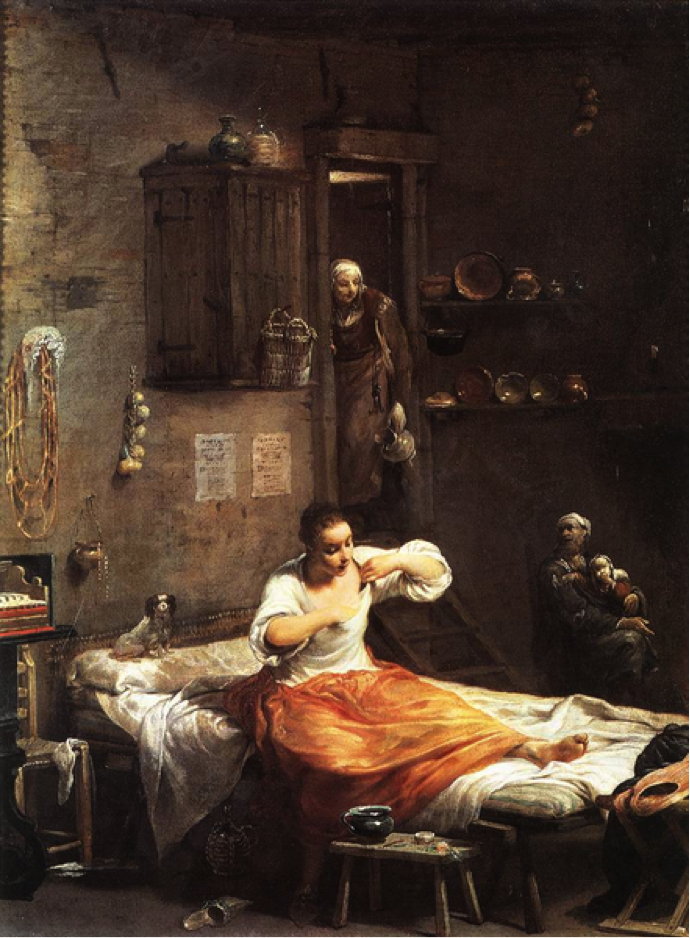John Donne
Stick a fork in us—we're Donne.
- Course Length: 3 weeks
- Course Type: Short Course
- Category:
- English
- Literature
- High School
Schools and Districts: We offer customized programs that won't break the bank. Get a quote.
John Donne (pronounced: done) is tricky, that's for sure.
But he's also mysterious, alchemical, erotic, violent, scientific, obsessive, startling, religious, enchanting, confusing, and seriously weird. We guess that's what you get when you cross a 17th-century smart-alecky ladies' man with an uptight death-fearing preacher: some of the strangest, most exciting poetry and prose in the English language.
This course will guide you through the best of John Donne, from his playful and painful love poems to his solemn religious prose where he dishes about sickness and death. We'll unravel his extended metaphors, examine his views on women and God, figure out how the soul and body are connected, bone up on some 17th-century scientific and religious context, and sort through his hamper of figurative imagery.
Who knows, we may even catch a falling star—stick around and see.
Required Skills
- An understanding of basic poetry concepts like meter, diction, and rhyme
- Basic familiarity with figurative language, including but not limited to metaphor
- Experience writing literary essays
Unit Breakdown
1 John Donne - Love Songs
In this unit, you'll get every variety of Donne's woman-obsession. We'll read poems about casual lust and ones about sad longing. We'll read verses of passionate misogyny, followed by philosophical meditations on how two souls can become one. What can we say? Donne was never one to play just one note.
2 John Donne - Death, Sickness, and Other Uplifting Things
This unit gets down and dirty in the most morbid, hyperbolic, decay-and-death-obsessed of Donnedom. Hearts and flowers? Love and sex? Not so much.
3 John Donne - Gimme that Old-Time Religion
In the religious works we'll read in this unit, Donne unleashes the complexity and violence of his theological thoughts and fears. This is the dark side of religion: we've got sickness, death, sin, pain, and Christ's crucifixion, all wrapped up in some of Donne's wildest metaphors.
Sample Lesson - Introduction
Lesson 1.01: Sexy Bedbugs
The flea. Doesn't it just make you swoon-woozy and heart-tickled down to your toes?

Yeah, we thought so. On a list of best love poem titles of all time, "The Flea" checks in right about last. But that hasn't stopped it from becoming one of the hottest tickets in the Donne repertoire, arguably the most famous of his many love poems.
Sexy, tricky, and packed full of surprises, this playful piece of poetic seduction is the perfect place to start thinking about metaphysical poetry and what makes it so goshdarned weird and so doggone wonderful.
For starters, Donne did not shy away from the grossness of life. "The Flea" is a rowdy, dirty, pretty disgusting comedic poem that celebrates the physicality of love. Where are our lutes and doves? Folks demanded a world used to gentle adoring sonnets. Donne answered them with this comic ditty about a blood-sucking insect. Talk about a slap upside the head.
But "The Flea" is definitely more than just a bunch of dirty jokes. It's also about the heavy hitting themes of seduction, virginity, power, and courtship. Plus, since the poem's told from a male point of view, we only get the man's perspective. What are we supposed to infer about the object of the speaker's affection and her views on sexuality and marriage? Is her reluctance religious or cultural or just plain personal? Add in some 17th-century theology and imagery galore and we've got way more than an intro to a bed bug collection.
This is hard stuff, Shmoopers. The extended metaphor or conceit that Donne uses here is downright bizarre, and the twists and turns of his logic are as jumpy and hard to pin down as a flea hopping in our bed. But worries avast, fearless fellow flea-hunters! In this lesson we're going to catch the heck out of that flea.
Sample Lesson - Reading
Reading 1.1.01: Bio and Shmoop
Biography
Before we, ahem, dive into bed with John Donne, his ladylove, and a flea, let's bone up a little on the dude's life. This biography by the Poetry Foundation is as long and thorough as some of Donne's best conceits, so feel free to skim. Just make sure you get a sense for the guy's situation—you know, his century, his birth, and his career.
The Poem
Now that we've got some Donne life-and-times under our belts, we're going to get bug catching. Read through "The Flea" at least three times: once to get a sense for what's going on; again to get a feel for the imagery and conceits; and a final time to listen for wordplay and verbal style (we're talking alliteration, assonance, and puns aplenty). Look up any unfamiliar words in a dictionary and we'll get cracking.
Summary
Wait, who bit whom and why is that supposed to be sexy? Let's Shmoop a little realtalk into what's going on here. Check out Shmoop's summary to get the skinny on what's literally going on here.
Point of View
Was that sarcasm we detected in that final line? Find out more about this not-so charmer right here in Shmoop's analysis of the speaker of the poem. As you read, ask yourself what the woman's perspective is in all of this. Why is she not given a voice? If you could watch a livefeed of her face during the poem, how would it look?
Still feeling lost? Click through our detailed, line-by-line summary for a walkthrough of the poem.
Sample Lesson - Activity
Activity 1.01a: Get Conceited
Creative Written Representation Rubric - 50 Points
Sample Lesson - Activity
Activity 1.01b: Diary Entry
- Course Length: 3 weeks
- Course Type: Short Course
- Category:
- English
- Literature
- High School
Schools and Districts: We offer customized programs that won't break the bank. Get a quote.